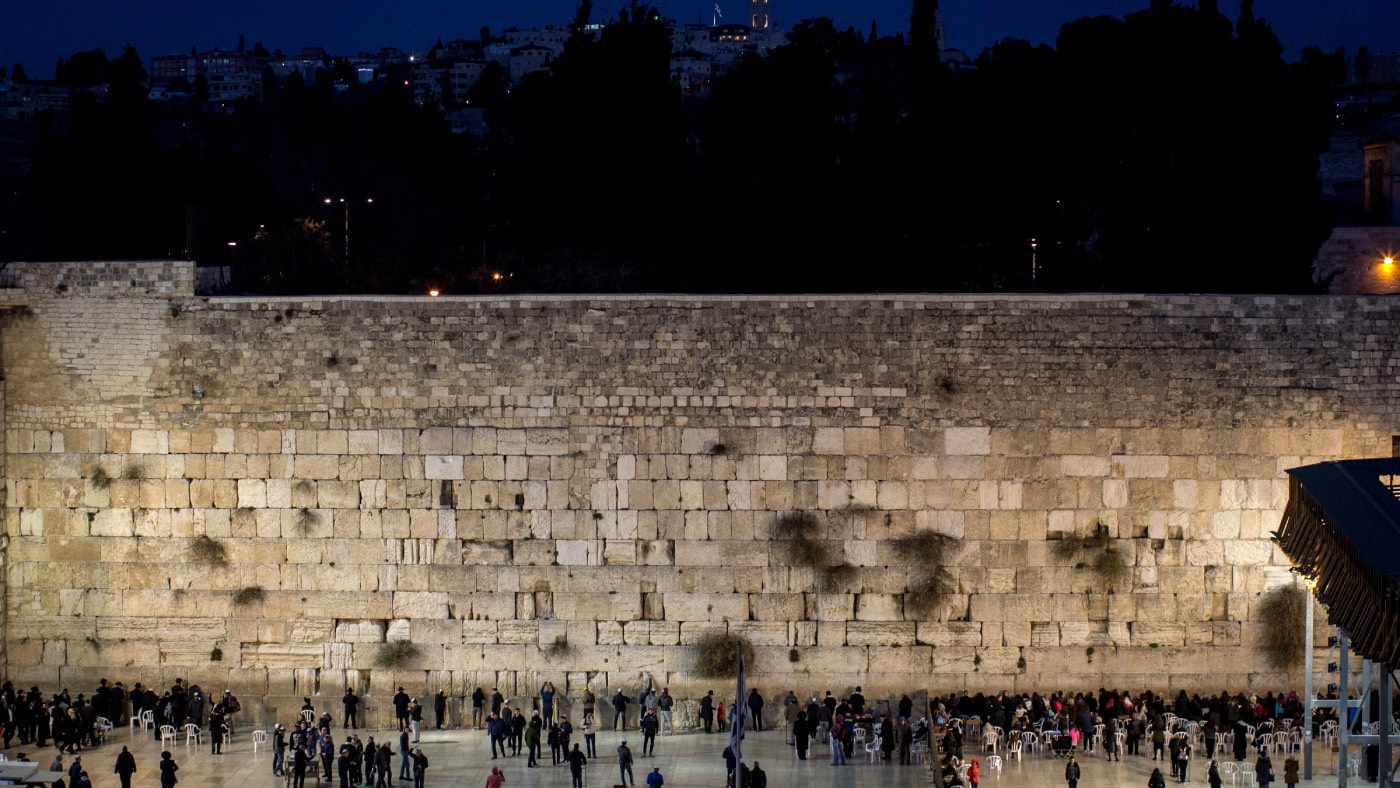Why Israeli railway plan is controversial
Extension of line to heart of Jerusalem's Old City condemned by Jordan and environmentalists

A free daily email with the biggest news stories of the day – and the best features from TheWeek.com
You are now subscribed
Your newsletter sign-up was successful
Jordan says Israel’s decision to press on with the construction of a railway line and station under Jerusalem's Old City is a “flagrant violation of international law”.
Israel’s transport ministry has announced that a new route had been approved for an extension of the Tel Aviv-Jerusalem high-speed railway.
This will include a tunnel leading to the Western Wall – a holy site for Jews – in the city's occupied east. The decision takes the route into the very heart of the decades-long conflict between Israel and the Palestinians.
The Week
Escape your echo chamber. Get the facts behind the news, plus analysis from multiple perspectives.

Sign up for The Week's Free Newsletters
From our morning news briefing to a weekly Good News Newsletter, get the best of The Week delivered directly to your inbox.
From our morning news briefing to a weekly Good News Newsletter, get the best of The Week delivered directly to your inbox.
The compound behind the Western Wall is known to Muslims as al-Haram al-Sharif (the Noble Sanctuary) and to Jews as the Temple Mount.
As the BBC explains, Israel regards Jerusalem as its “eternal and undivided” capital, but the Palestinians say East Jerusalem - occupied by Israel in the 1967 Middle East war - is the capital of a future state.
Jordan’s foreign ministry spokesman called on the international community to “assume its responsibilities to resist the illegitimate and illegal Israeli steps”. Jordan has special responsibility for overseeing the Muslim holy sites in Jerusalem through an Islamic trust called the Waqf.
The Israeli daily newspaper Israel Hayom said the new train station will be named after US President Donald Trump, in recognition of his decision to move the US Embassy to Jerusalem.
A free daily email with the biggest news stories of the day – and the best features from TheWeek.com
That move was in itself highly controversial. Palestinian President Mahmoud Abbas has described Trump's decision as the “slap of the century”.
The station will be 50 metres underground and will be connected by escalators to the esplanade of the Western Wall.
“It is a very exciting time for Israel and for the generations to come,” said Israeli Transport Minister Bezalel Smotrich. “We are realising Zionism,” he added.
The route will reportedly involve building two underground stations and digging a tunnel beneath central Jerusalem. Israeli environmentalists have criticised the decision.
Last year, Israeli authorities passed a plan to build a cable-car network that would transport visitors from West Jerusalem to the Western Wall. Critics said it would damage the historic landscape of the Old City - a Unesco World Heritage site.
–––––––––––––––––––––––––––––––For a round-up of the most important stories from around the world - and a concise, refreshing and balanced take on the week’s news agenda - try The Week magazine. Start your trial subscription today –––––––––––––––––––––––––––––––
-
 Political cartoons for February 21
Political cartoons for February 21Cartoons Saturday’s political cartoons include consequences, secrets, and more
-
 Crisis in Cuba: a ‘golden opportunity’ for Washington?
Crisis in Cuba: a ‘golden opportunity’ for Washington?Talking Point The Trump administration is applying the pressure, and with Latin America swinging to the right, Havana is becoming more ‘politically isolated’
-
 5 thoroughly redacted cartoons about Pam Bondi protecting predators
5 thoroughly redacted cartoons about Pam Bondi protecting predatorsCartoons Artists take on the real victim, types of protection, and more
-
 Will increasing tensions with Iran boil over into war?
Will increasing tensions with Iran boil over into war?Today’s Big Question President Donald Trump has recently been threatening the country
-
 Corruption: The spy sheikh and the president
Corruption: The spy sheikh and the presidentFeature Trump is at the center of another scandal
-
 Rubio boosts Orbán ahead of Hungary election
Rubio boosts Orbán ahead of Hungary electionSpeed Read Far-right nationalist Prime Minister Viktor Orbán is facing a tough re-election fight after many years in power
-
 Greenland’s capital becomes ground zero for the country’s diplomatic straits
Greenland’s capital becomes ground zero for the country’s diplomatic straitsIN THE SPOTLIGHT A flurry of new consular activity in Nuuk shows how important Greenland has become to Europeans’ anxiety about American imperialism
-
 Epstein files topple law CEO, roil UK government
Epstein files topple law CEO, roil UK governmentSpeed Read Peter Mandelson, Britain’s former ambassador to the US, is caught up in the scandal
-
 Iran and US prepare to meet after skirmishes
Iran and US prepare to meet after skirmishesSpeed Read The incident comes amid heightened tensions in the Middle East
-
 Which way will Trump go on Iran?
Which way will Trump go on Iran?Today’s Big Question Diplomatic talks set to be held in Turkey on Friday, but failure to reach an agreement could have ‘terrible’ global ramifications
-
 Israel retrieves final hostage’s body from Gaza
Israel retrieves final hostage’s body from GazaSpeed Read The 24-year-old police officer was killed during the initial Hamas attack